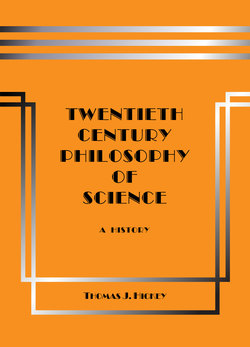Читать книгу Twentieth-Century Philosophy of Science: A History (Third Edition) - Thomas J. Hickey - Страница 97
На сайте Литреса книга снята с продажи.
4.17 Semantics of Empirical Testing
ОглавлениеMuch has already been said about the artifactual character of semantics, about componential semantics, and about semantical rules. In the semantical discussion that follows these concepts are brought to bear upon the discussion of empirical testing and test outcomes.
If a test has a nonfalsifying outcome, then the semantics of the tested theory is unchanged for the theory’s developer and advocates. Since they had proposed the theory in the belief that it would not be falsified, their belief in the theory makes it function for them as a set of semantical rules. Thus for them both the theory and the test design are accepted as true, and after the nonfalsifying test outcome both sets of statements continue to contribute parts to the complex meanings of the descriptive terms common to both theory and test design, as before the test.
But when the test outcome is a falsification, there is a semantical change produced in the theory for the developer and advocates of the tested theory who accept the test outcome as a falsification. The unchallenged test-design statements continue to contribute semantics to the terms common to the theory and test design by contributing their parts to the meaning complexes of each of the common terms. But the component parts of those meanings contributed by the falsified theory statements are excluded from the semantics of those common terms for the proponents who no longer believe in the theory due to the falsifying test outcome.
